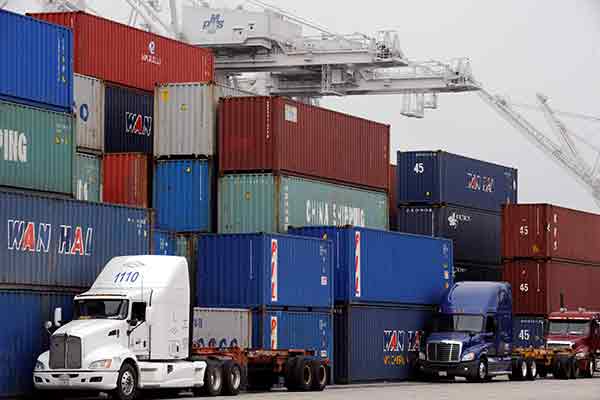Calm before tariff storm at US ports?


With less than a week to go before the United States is set to impose tariffs on another $34 billion of Chinese imports, there seems to be a minimal impact so far on cargo from China, according to some major ports.
"At this time, it is too early to tell if trade sanctions are negatively impacting Port NOLA (New Orleans) cargo numbers," spokesman Donnell Jackson said.
"It is too early to tell," said spokeswoman Lenis Rodrigues of the Port Authority of New York/New Jersey.
Two weeks ago Dustin Braden, a data analyst with the Journal of Commerce and IHS Markit, wrote a report that said US-China container trade was accelerating despite the threat of tariffs.
Braden said his report referred to US imports from Asia, not just China. "It is also important to note that it was for just the first quarter. That growth was most likely due to US importers rushing shipments as tariff uncertainty grew," Braden said.
"If you look at the first five months of this year, growth in US imports from China slowed to 2.7 percent for 4.3 million 20-foot equivalent units, or TEUs, from 7.1 percent in the same period of 2017," said Braden.
As for US exports to China, Braden said first-quarter data showed a 19.3 percent decline from 2017 to 614,588 TEUs. "That was due almost exclusively to China's waste ban, as that is the largest US export, and China is the top market for that export," he said.
Jock O'Connell, a trade adviser at California-based Beacon Economics, said the top five US ports for Chinese imports last year were Los Angeles/Long Beach (California), New York/New Jersey, Savannah (Georgia), Tacoma (Washington) and Oakland. Nearly $314 billion in Chinese goods bound for the US was shipped by sea in 2017, O'Connell said.
"Since nearly half of all Chinese containerized imports entering US seaports come through the neighboring ports of Long Beach and Los Angeles, the impact of tariffs would most dramatically be felt in Southern California," O'Connell said.
Depending on the extent and longevity of tariffs, O'Connell said blue-collar workers in Southern California will be on the frontline of the dispute.
"The jobs of a few hundred thousand truck drivers and warehouse workers in southern California would be seriously imperiled," he said.
"Truckers would see fewer loads to haul, and warehouse workers would see fewer containers arriving for processing. If tariffs or other restrictions on trade remain in effect for several months or even years, the impact on a large segment of Southern California's blue-collar workforce could be devastating."



































